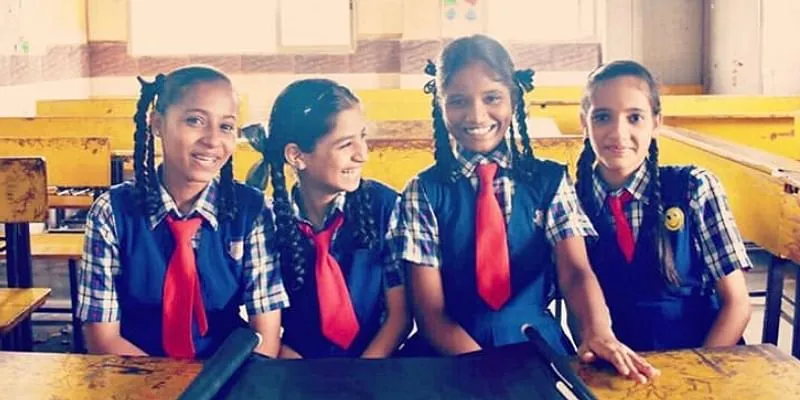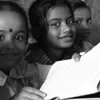Women's Day: How a lone woman's mission to bring millions of girls back to the classroom gave rise to Project Balika
On International Women's Day, Social Story brings you the story of Project Balika. Launched by Jasmine Bala, Project Balika focuses on girls’ education and also conducts several community initiatives around menstrual hygiene, nutrition, and gender sensitisation.
Malwani is a densely populated, largely low-income neighbourhood in the suburbs of Mumbai. It is an area that is known for crimes against women and high incidences of violence and drug abuse. Education is not a priority, even less so for the girls who live here.
Jasmine Bala first came to the neighbourhood as a Teach for India Fellow from Brown University to work in a school teaching seventh graders. “I knew they all had tough lives at home, but I saw that they came to school every day, motivated to make new lives for themselves.”
On her return to the school between the first and second year of her fellowship, she was surprised to find that 26 out of the 41 girls in her classroom had dropped out of school. When she visited their homes, she found that it was the norm for adolescent girls to abandon their education and start working in the home and prepare for married life.

Jasmine Bala with the students in the Project Balika programme.
Jasmine says there was a deep-rooted value system of inequality between boys and girls. Apart from financial constraints faced by families, there is a social perception of girls being better suited to household chores rather than careers outside the home.
“I started going from door to door, convincing parents to send their girls to school, and sought help from community influencers and older women to help me in my quest. What started as an effort to fill the seats in my classroom evolved into Project Balika, where the dream is to bring millions of girls back to the classroom benches,” she says.
After founding Project Balika in 2017, Jasmine was soon joined by a core team – Sneha Shenoy, Vaishnavi Kumar,and Vishvesh Varma, who helped her grow Project Balika to a team of over 150 volunteers, mentors, and teachers who work to impact girl child education. Jasmine also had a very special team of student volunteers when she started the project.
“When I visited homes in Malwani to bring back girls to school, I was accompanied by Pooja, Nida, Anu, Mahek, and Kusum, who were currently enrolled in school. They were eager to see their friends come back to the classroom. They have been my pillar of strength since Day 1. I saw in them resilience like never before-- they understood the problem at hand and worked with me fervently to make a change in their community.”
Focus on the future
To make Project Balika a sustainable success, Jasmine and her team realised that they had to target every step in the value chain, beginning from when a girl was enrolled at school. They charted a four-pronged approach – remedial classes, health and nutrition, parental/community support, and career guidance.
Jasmine says the immediate impact was astounding. “In less than six months, we had increased retention in schools by 78 percent with more than 90 percent of our girls reporting higher confidence levels after re-entering school.”
She says that these girls, who had initially resigned themselves to being stuck in the home, were now talking about college and the difference they were going to make in society.

These students went from door to door with Jasmine convincing their classmates to return to school
Project Balika currently manages multiple initiatives in the neighbourhoods where they work. These include:
- Community Support: Providing health and nutrition support to the entire community in and around Malwani. They also hold spoken English classes, conduct sanitation and water accessibility drives, and promote healthy relationships amongst community members. They have impacted approx. 25K members through various community initiatives.
- Ongoing classroom support: Speaking to the families in the community to convince them to send their children to school. This includes providing regular scholarships (for both exam and tuition fees) and infrastructure support, defining core curriculum and the framework of pedagogy at school, monitoring learning outcomes, and tracking career progression and continuity. They have impacted approximately .2.5K students through ongoing classroom support programmes.
- School-to-College Pathways programme: Ongoing support to Class 10 students to help them transition to college. This includes board exam coaching, college application support, and career guidance/course selection via one-on-one counselling sessions. They have facilitated over 300 college enrollments (90 percent+ success rate). Some of the students have been able to secure admission in premier colleges such as St Xaviers, Narsee Monjee, Ruia, and TP Bhatia College.
- School Leaders Programme: Partnering with other schools across the country to provide ongoing support - leadership training and skill building, pedagogy support, and fundraising for academic and other purposes. They have a network of approximately 70 pan-India school leaders
Project Balika has signed partnerships with University of Pennsylvania, (Feeding India), Epigamia (Drums Food International), Teach for India, Red is the New Green (RINGnja Masks, Sweet Nation, Corona Quilt Project, and GoNuts), Impact Guru, amd Aspire for Her, to support their various initiatives.
“As time went by, we built on our support framework and used feedback from multiple stakeholders to serve the child better. Even today, we spend a few hours a week reflecting on what we can do better to improve student outcomes,” Jasmine says
The pandemic fallout
The education sector was among those most affected by COVID-19. “Over 154 crore students were impacted due to school closures. Our classes have had to move entirely online, and the lack of access to technology for most of our girls posed an additional barrier to education from home. However, our girls are resilient and have risen to face the challenge that lies ahead of them,” Jasmine says.
Project Balika has been very active through the pandemic, working not just with their partner schools, but across the country. This includes the (i) distribution of ration/meal packets to 25,000 families; (ii) running a women’s hygiene and sanitation drive by distributing sanitary pads and menstrual cups to 12, 000 women in partnership with Red is the New Green [RING]; (iii) raising over Rs 3 lakh for fundraising and other support to families; and (iv) running an ongoing, six-month, research project, in collaboration with The University of Pennsylvania to further identify various social and emotional problems faced by the community during COVID-19, to devise a working support system to overcome these challenges, among others.
A key initiative was establishing a network where women could share domestic troubles. Jasmine says even prior to the pandemic, they regularly conducted prevention of sexual harassment and domestic violence workshops for students and their families.
The road ahead
Jasmine says in the early days, her primary focus was on fundraising for school fees and scholarships.
“Fortunately for us, we got a lot of support from corporate houses and individuals, who not only offered to fund the education of a child, but also provide all-round mentorship and support.”
Project Balika currently works with close to 15 affordable private schools across Mumbai, Pune, and Kolkata. “We also have a network of 70 + school leaders across many other schools as well to make schools more gender-inclusive. We try to balance high quality with steady growth across these schools, and what differentiates us from other players in the field is that we do not compromise on the quality of our educational outcomes. We do want to impact as many schools as possible, but will ensure high-quality outcomes for each school we adopt,” Jasmine says.
Jasmine believes that addressing the issue of inequitable education for the girl child needs both a top-down and bottom-up approach. The team plans to address grassroots challenges faced by girls while strengthening ties with institutions that support them.
Other things in the pipeline include implementing a social-emotional learning and gender-inclusive curriculum in all their schools; exploring opportunities to work with corporate CSR teams; and expanding outreach into other at-risk communities in major cities.
“We want to ensure that every girl is given adequate assistance at every step of the value chain, right from when she is in school to when she enrolls in college,” Jasmine says.
Edited by Teja Lele







